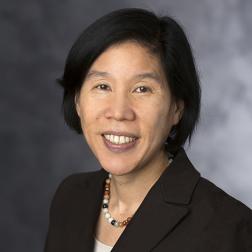COVID-19: What Links Are Health Policy Experts Following at the Baker Institute?

Table of Contents
Author(s)
Like many of you, Baker Institute fellows have been following news of the COVID-19 pandemic from home this week. Local, regional and national news outlets are all providing informative coverage. As career health policy researchers, we receive notifications from sources that you may not be aware of. Following are a few items on COVID-19 in the past week or so that are worth mentioning.
If you haven’t had time to follow the news closely, start here. These are notes taken by an audience member who attended a panel of five distinguished researchers at the University of California, San Francisco. Baker Institute Scholar Anaeze Offodile shared these notes with me, and even though the material is from March 10, it contains useful information on the overall public health risk of COVID-19, as well as advice for individuals on how to prepare.
Many of you are aware that Peter Hotez, fellow in disease and poverty with the Baker Institute Center for Health and Biosciences and dean of the National School of Tropical Medicine at Baylor College of Medicine, will be conducting a webinar on Thursday, March 26, discussing the impact of the novel coronavirus on global security. Project manager Patrick Tennant made me aware of a podcast called The Drive, hosted by physician Peter Attia, that contains two in-depth discussions with Peter Hotez regarding the COVID-19 outbreak. In the first episode, Hotez describes what we know about transmissibility and lethality, the possibilities for a short-term temporary treatment using serum drawn from the plasma of patients who have recovered from the disease, drug and vaccination challenges, and several other issues. In the second episode, a continuation of the conversation recorded March 20, Hotez discusses how to gauge the true number of infected people, reducing the probability of getting infected, and vaccine development.
Scott Gottlieb and Mark McClellan, two former FDA commissioners and physicians, jointly published a paper on March 19 calling for the FDA to establish two task forces to support the FDA in working directly with manufacturers that have high potential to develop and deliver point-of-care diagnostics, therapeutics and prophylactics. The paper is filled with numerous specific recommendations for funding and action. We are interested in seeing whether the presidential administration and Congress provide the support to pursue these goals, and whether they are ultimately effective in improving public safety.
This slide deck from the Advisory Board contains estimates of the projected impact of COVID-19 that are being shared with health care executives across the country. Slide 12, which presents projections of ICU bed shortages by state and date intervals, is particularly sobering. Louisiana hospitals are predicted to be in crisis on March 30, with Texas following April 30. We have all seen stories in the news about shortages of personal protective equipment (PPE) and ventilators for physicians and hospitals on the front line. I am hearing these same concerns through personal emails with physicians at the Texas Medical Center. Listen to this Tradeoffs podcast episode for the experience at the University of California, San Francisco, which is similar to other hospitals across the country. Hospitals must continue their mission to treat patients who suffer from strokes, heart attacks, acute asthma attacks, and cancer. In California, where COVID-19 is more widespread, the Los Angeles Times is reporting that health care workers are stressed trying to treat patients with insufficient PPE. One nurse was told to continue working, even though he spent the weekend working alongside a physician who tested positive for the virus.
Policymakers and the experts they rely on are making decisions in the midst of a rapidly evolving crisis, with insufficient information. Like you, we will continue to follow the pandemic closely and share our thoughts. In the meantime, we wish you, your family and friends strong health, strong spirits and courage in these trying times.
This material may be quoted or reproduced without prior permission, provided appropriate credit is given to the author and Rice University’s Baker Institute for Public Policy. The views expressed herein are those of the individual author(s), and do not necessarily represent the views of Rice University’s Baker Institute for Public Policy.



